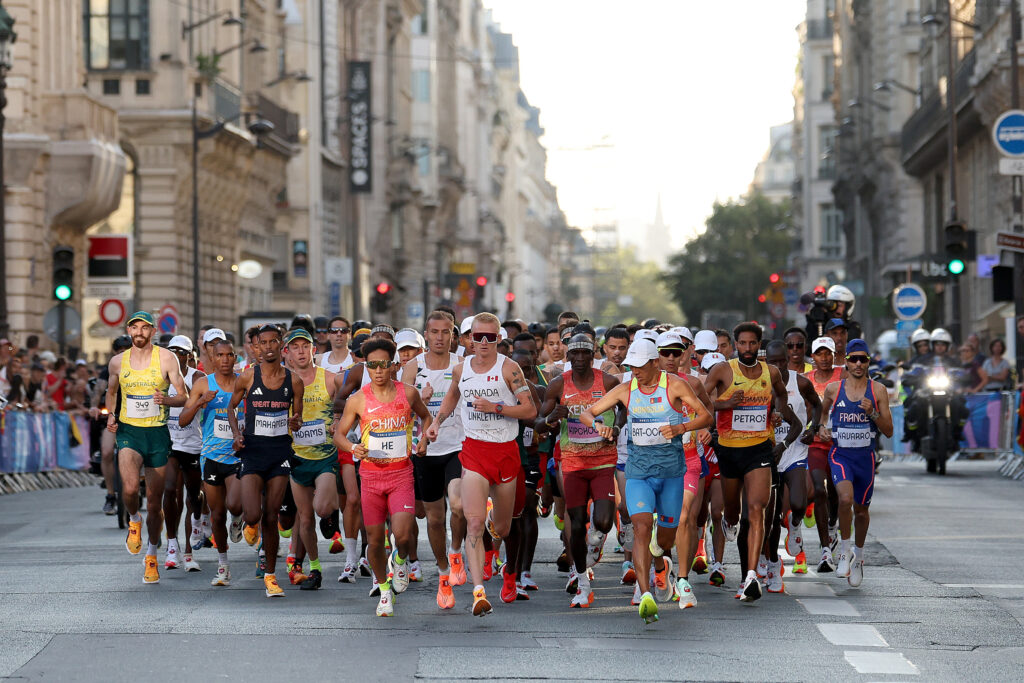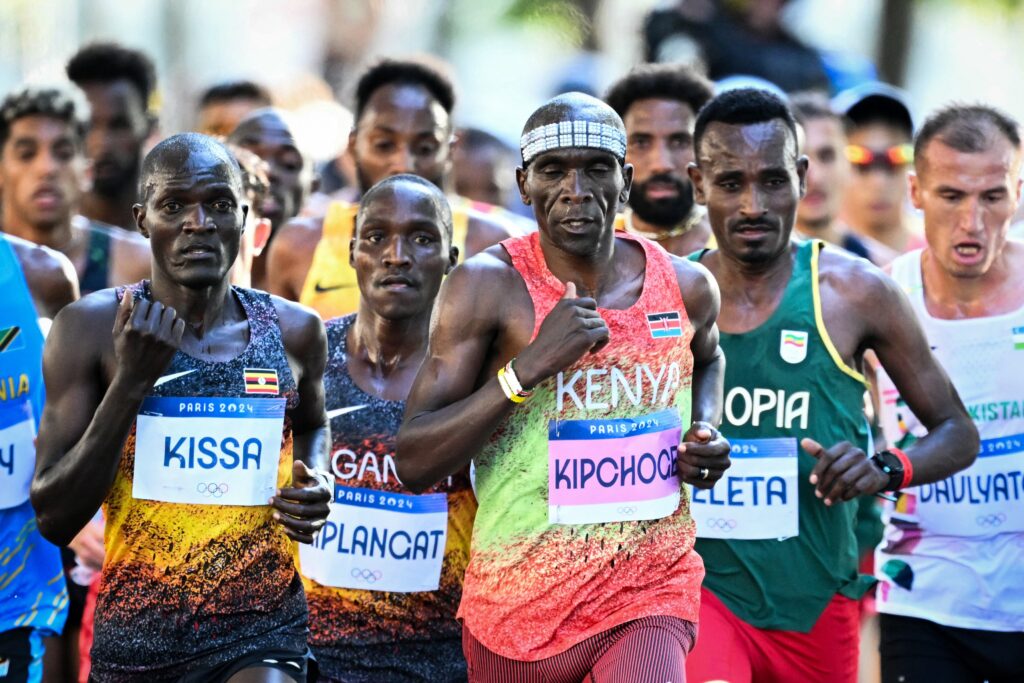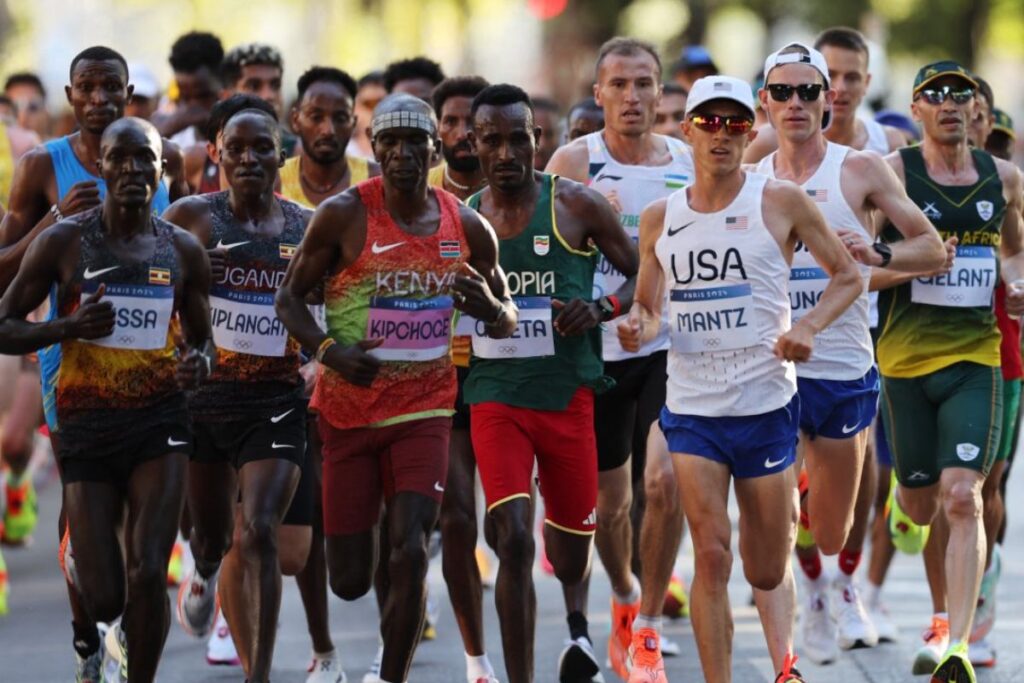On a warm August morning in Paris, the world witnessed the unexpected conclusion of Eliud Kipchoge’s illustrious Olympic career.
After nearly two decades of dominance in long-distance running, the Kenyan marathon legend announced he would not compete in another Olympics, marking the end of an era for the sport.
Kipchoge, a two-time Olympic marathon champion and widely regarded as the greatest marathoner of all time, failed to finish a race for the first time in his storied career.
The Paris 2024 Olympic marathon, which was supposed to be his swan song, turned into an emotional farewell as he dropped out of the race after the 30-kilometer mark, citing severe discomfort around his waist.
“It is a difficult time for me,” Kipchoge admitted in an interview with Olympics.com, his voice tinged with disappointment but still carrying the quiet dignity that has defined his career. “This is my worst marathon. I have never done a DNF (Did Not Finish). That’s life. Like a boxer, I have been knocked down, I have won, I have come second, eighth, 10th, fifth – now I did not finish. That’s life.”

At 39 years old, just shy of his 40th birthday, Kipchoge had arrived in Paris with high hopes of adding another chapter to his legendary Olympic journey. Having won gold in Rio 2016 and Tokyo 2020, he was aiming for a historic third consecutive Olympic marathon title, a feat no other runner has ever achieved. But the marathon course in the French capital, which had catapulted him to global fame as a teenage 5000m world champion, would instead be the scene of his first Olympic defeat.
The day began with promise. The conditions were ideal for marathon running—19 degrees Celsius with average humidity—and Kipchoge exuded confidence as he mingled with other runners at the start line in Place de l’Hôtel de Ville. Among them was his longtime rival, Kenenisa Bekele, and the two exchanged friendly fist bumps, a sign of the mutual respect between the titans of distance running.
As the race unfolded, Kipchoge stayed close to the leading pack, a familiar sight for those who have followed his career. But by the 15-kilometer mark, worrying signs began to emerge. Kipchoge started holding his waist, a signal that all was not well. Despite his best efforts to push through the pain, the discomfort intensified, forcing him to slow down and eventually drop out of the race.
“My waist was a little bit painful. It was a sharp pain,” Kipchoge explained later. “And it was not allowing me to continue with the race.” The decision to withdraw was a difficult one, especially for a man who had trained rigorously for months leading up to the Olympics. “It’s difficult for you to train for more than four months and then get a pain where it can stop you,” he lamented.

Kipchoge’s decision to walk off the course was met with an outpouring of support from both his fellow runners and the spectators lining the picturesque streets of Paris. Swiss runner Tadese Abraham even slowed down to check on him, and Kipchoge acknowledged the encouragement from others in the race. “The other runners were telling me to push on, but I was telling them, ‘No, I have pain, I can’t.’ I could feel the love and respect from them,” he said.
Despite the pain, Kipchoge walked for 2 kilometers, accompanied by over 300 people cheering him on. He eventually stopped when the last runner on the course, Mongolia’s Ser-Od Bat Ochir, passed him. By the time he reached the finish line, Kipchoge was wearing only his shorts, having given away his shirt, socks, shoes, and race number to fans along the way.
Reflecting on the race, Kipchoge offered a poignant metaphor for his experience: “Sport is like a garden when you go and plant seed, then there are actually weeds and flowers; today I harvested weeds.” It was a sobering admission from a man who has known mostly triumphs in his career, but one that underscored the unpredictability and challenges of elite sports.

Although his Olympic career has come to an end, Kipchoge made it clear that he has no plans to retire from marathon running. “I will continue to [run], absolutely, why not?” he said when asked about his future. However, he ruled out a transition into coaching, instead expressing a desire to focus on other endeavors, including traveling the world to inspire and motivate others.
Kipchoge’s Olympic career is one for the history books. He is one of only three men to win two Olympic marathon titles, and his legacy extends far beyond the medals he has won. He has redefined what is possible in marathon running, most notably by becoming the first man to run a marathon in under two hours, a feat he achieved in a non-competitive event in 2019.
His influence on the sport is immeasurable, and his decision to step away from Olympic competition marks the end of an era. As he embarks on the next phase of his career, Kipchoge leaves behind a legacy of excellence, perseverance, and grace—a true testament to the heart of a champion.
While the Paris 2024 marathon did not go as planned, Kipchoge’s impact on the sport and the inspiration he has provided to millions will endure long after the final Olympic flame is extinguished. The marathon may be over, but Eliud Kipchoge’s journey is far from finished.
Source: Paris Olympics
